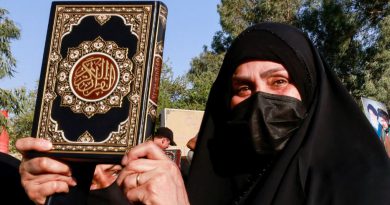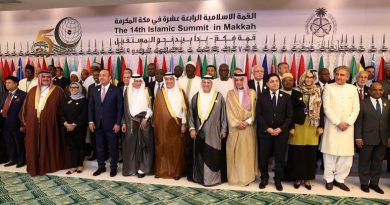Macron announces Saudi-French initiative to solve crisis with Lebanon
Doha/cairo (Reuters) – France and Saudi Arabia agreed on Saturday to do more to help the Lebanese population, work to solving a diplomatic row between Beirut and the Gulf states and jointly push to get the government there running.
Lebanese Information Minister George Kordahi resigned on Friday to help end a diplomatic spat with Saudi Arabia over comments he had made in October criticising Saudi Arabia’s role in the war in Yemen, which had prompted Riyadh to ban Lebanese imports.
French President Emmanuel Macron, who was in Saudi Arabia for talks with Crown Prince Mohammed bin Salman (MBS) as part of a Gulf tour, told reporters Riyadh had committed to re-engage financially in the short-term.
“We are therefore now going to work in a very concrete way to put this together between the two of us,” he said, without providing specifics.
The two leaders spoke with Lebanese Prime Minister Najib Mikati. Macron said he would call his Lebanese counterpart, Michel Aoun, on his return to Paris.
Mikati said in a statement that the call had been an “important step” in restoring relations with the Gulf states.
Macron has led international efforts to resolve the political and economic crisis in Lebanon. But despite staking a lot of his capital on the issue for more than a year he has failed so far to push the country’s squabbling politicians to carry out economic reforms that would unlock vital foreign aid.
In October, Riyadh expelled Lebanon’s envoy to the kingdom, recalled its ambassador to Beirut and banned Lebanese imports following the remarks by Kordahi on Saudi Arabia’s role in the Yemen war.
The United Arab Emirates (UAE) and Bahrain took similar steps against Lebanon following the Saudi move.
Kordahi said on Friday when he resigned that he was acting in his country’s interest to help end the dispute.



